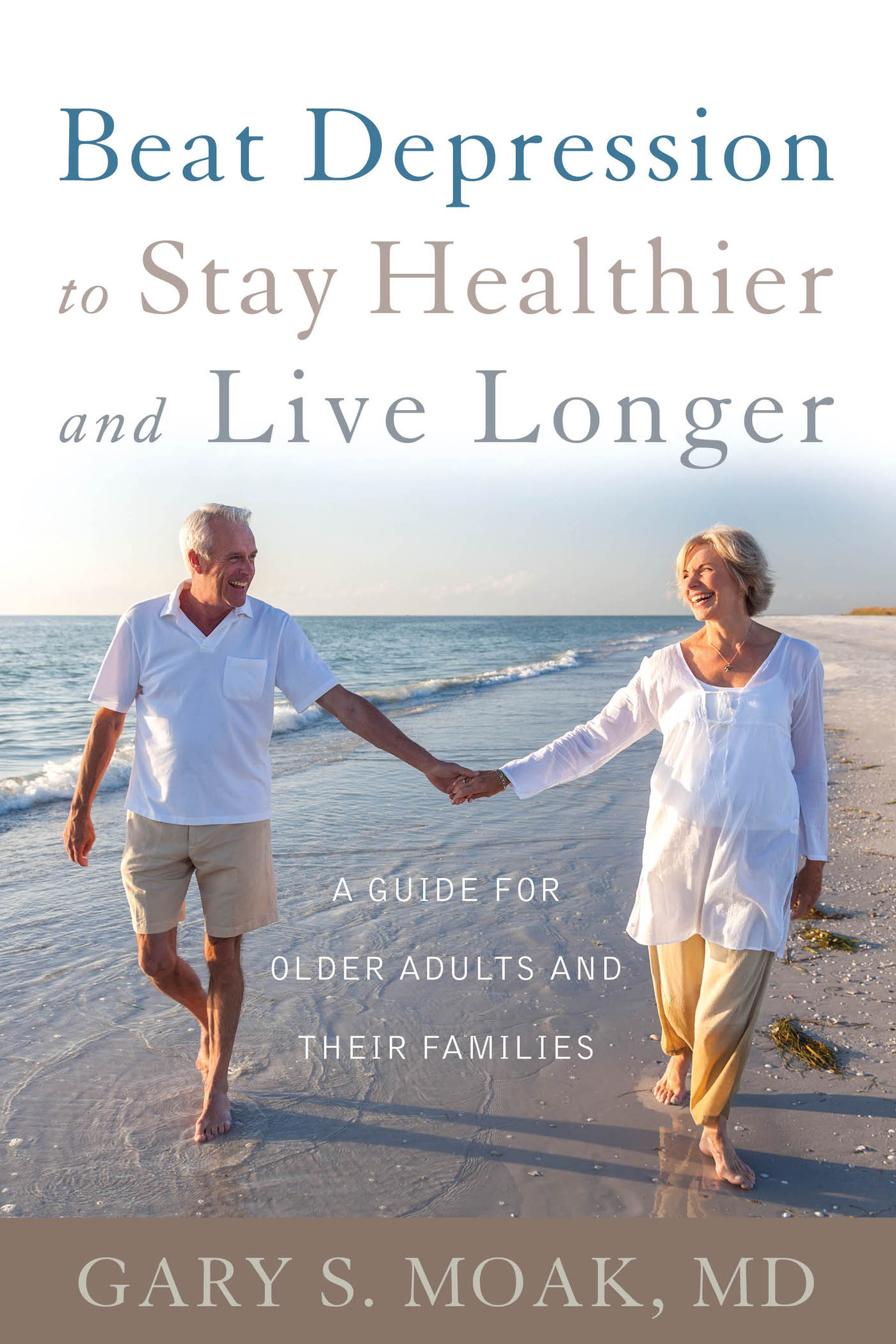Beat Depression to Stay Healthier and Live Longer
A Guide for Older Adults and
Their Families
Gary S. Moak, MD
ROWMAN & LITTLEFIELD
Lanham Boulder New York London
This book represents reference material only. It is not intended as a medical manual, and the data presented here are meant to assist the reader in making informed choices regarding wellness. This book is not a replacement for treatment(s) that the readers personal physician may have suggested. If the reader believes he or she is experiencing a medical issue, professional medical help is recommended. Mention of particular products, companies, or authorities in this book does not entail endorsement by the publisher or author.
Published by Rowman & Littlefield
A wholly owned subsidiary of
The Rowman & Littlefield Publishing Group, Inc.
4501 Forbes Boulevard, Suite 200, Lanham, Maryland 20706
www.rowman.com
Unit A, Whitacre Mews, 26-34 Stannary Street, London SE11 4AB,
United Kingdom
Copyright 2016 by Rowman & Littlefield
All rights reserved. No part of this book may be reproduced in any form or by any electronic or mechanical means, including information storage and retrieval systems, without written permission from the publisher, except by a reviewer who may quote passages in a review.
British Library Cataloguing in Publication Information Available
Library of Congress Cataloging-in-Publication Data
Moak, Gary S.
Beat depression to stay healthier and live longer : a guide for older adults and their families / Gary S. Moak, MD.
pages cm
Includes bibliographical references and index.
ISBN 978-1-4422-4661-4 (cloth : alk. paper) ISBN 978-1-4422-4662-1 (electronic)
1. Depression in old ageTreatment. I. Title.
RC537.5.M63 2016
618.97'68527dc23
2015031861
 TM The paper used in this publication meets the minimum requirements of American National Standard for Information Sciences Permanence of Paper for Printed Library Materials, ANSI/NISO Z39.48-1992.
TM The paper used in this publication meets the minimum requirements of American National Standard for Information Sciences Permanence of Paper for Printed Library Materials, ANSI/NISO Z39.48-1992.
Printed in the United States of America
Dedicated to Cheryl Moak, wife, best friend, and partner, without whose love, support, and encouragement this book would not have been possible.
I would like to acknowledge my very dear friend, Dr. Joseph Annibali, for his inspiration and encouragement to write the book and for his excellent reviews of earlier drafts.
Preface
If youve picked up this book, maybe you already realize that depression in old age is a serious problem, one that can spoil the golden years, turning a happy time of life into one of sadness, misery, worry, and despair. Well, its a bigger problem than you thought. What you may not know is that depression is not just an emotional problem. Left untreated, depression takes a heavy toll on physical health, leading to greater illness, physical disability, and premature death. I refer to this bleak picture as the spiraling decline of depression. It is an untold story and the reason that I wrote Beat Depression to Stay Healthier and Live Longer: A Guide for Older Adults and Their Families. This book will not only alert you about the connection between depression and your health, or that of an older adult you care about. It also will tell you what you can do about it.
The good news is that the spiraling decline of depression is preventable, since late-life depression is treatable. Tragically, the vast majority of older adults with depression do not receive treatment for it. They miss their chance to avoid both the suffering of depression and the terrible damage it does to their health. And their friends and family suffer needlessly too, watching them go downhill mentally and physically, while standing by helplessly.
This doesnt have to happen. So why does it? The answer is complicated, but it comes down to two main reasons. First, many older adults with depression deny having a mental health problem, or they decline help that, to them, smacks of mental health care. And second, those who are willing to accept help too often have difficulty finding good treatment. Maybe you find this shocking, or maybe you have already come face-to-face with these issues yourself.
Fortunately, you neednt feel helpless or hopeless about depression, regardless of your age or that of the person with depression you care about. Beat Depression to Stay Healthier and Live Longer will help you deal with depression. Reading this book, you will see that depression is not simply an expectable reaction to being old but a real brain disease that can be diagnosed and treated. You will learn how to identify the various forms of depression and to recognize other conditions that masquerade as depression. Most important, you will learn how depression can worsen diseases such as diabetes, chronic lung disease, heart failure, chronic kidney disease, arthritis, and cancer, and how it can increase the chance of heart attack, stroke, Alzheimers disease, Parkinsons disease, and dying prematurely. You will learn about treatment of depression in older adults and find out how to recognize good treatment and find it. You will see that depression is treatableyou can get your life back! And finally, you will find advice about how to help a reluctant elder accept professional help, whether its for yourself or someone you care about. I hope this will help you feel more confident about seeking treatment for depression or encouraging someone you care about to do so.
All the older adults I know worry about Alzheimers disease to one degree or another. In my opinion, depression is just as big a threat to the golden years. My patients with depression seem to suffer more than those with Alzheimers disease. And depression leads to worsening health, disability, and premature death, whereas Alzheimers disease does not. Depression is also more common than Alzheimers disease. Our best estimates are that clinically significant depression affects one in five older adults. Among certain groups of older adults, it is even more common. Depression affects 40 percent of nursing home residents, 40 percent of those with Alzheimers disease, and half of those with Parkinsons disease. And at least half of all caregivers of persons with dementia have depression.
Depression doesnt affect only the person who has it. I consider depression in old age to be a family illness. It disrupts family life and is very stressful for family members. In fact, depression is disruptive to us all. According to the World Health Organization, depression is the second leading cause of disability around the world. And it quadruples the cost of all health care, which, these days, no society can afford.
I wrote Beat Depression to Stay Healthier and Live Longer based on my thirty years of experience practicing geriatric psychiatry and working with older patients and their families. Each day, I spend much of my time talking with patients and their family members about normal aging, late-life depression, and treatment.
By the time patients find their way to my practice, many are frustrated and desperate for help. They are lost and do not know where to turn. Some have sought answers to their questions on the Internet but found the information confusing or not applicable to older adults. Very early in my career I realized that successful treatment of older patients depended upon teaching them and their family members about depression and its treatment. In my daily practice I answer the questions my patients and their family members ask. I also make them aware of things they did not know they needed to know. My patients and their family members express relief that theyve come to the right place and found a doctor they can talk to and understand! I want my readers to share that same feeling.

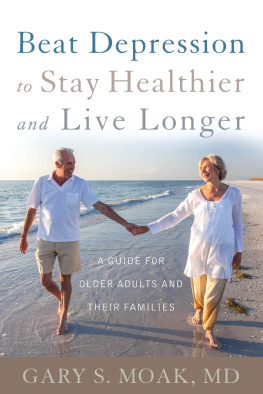

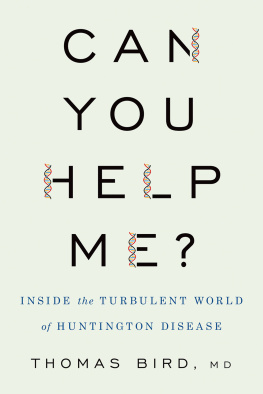
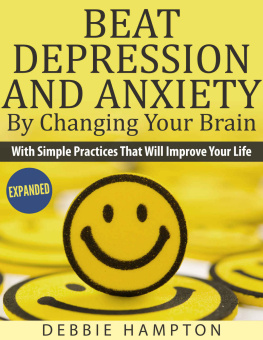
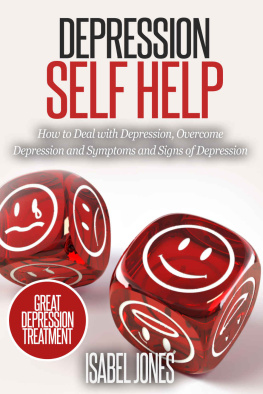
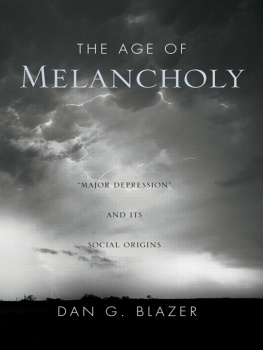
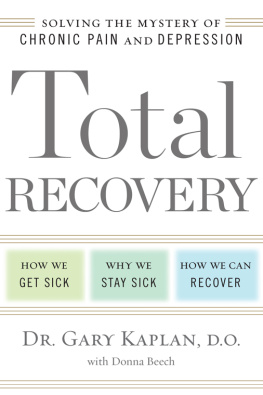
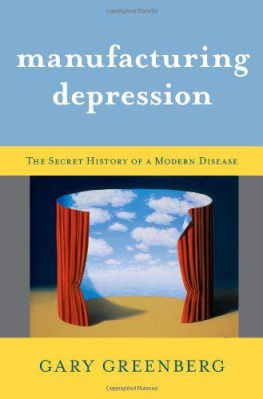
 TM The paper used in this publication meets the minimum requirements of American National Standard for Information Sciences Permanence of Paper for Printed Library Materials, ANSI/NISO Z39.48-1992.
TM The paper used in this publication meets the minimum requirements of American National Standard for Information Sciences Permanence of Paper for Printed Library Materials, ANSI/NISO Z39.48-1992.